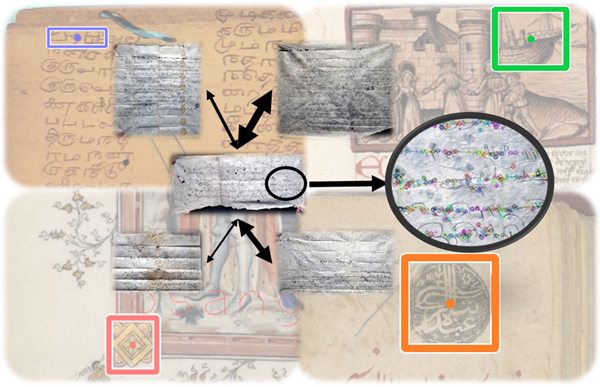Pattern Recognition in 2D Data from Digitised Images and Advanced Acquisition Techniques
2019–2022
RFA05

Automatic pattern detection and recognition can speed-up the manual work and provide quantitative measurements for the scholars from written-artefact research. Furthermore, it can provide access to additional information, which is typically beyond the reach of scholars, such as fine differences in details, statistical pattern similarities, and invisible structures for human vision. Such computational methods require only digital images or data from advanced acquisition techniques such as microscopes and multi-spectral ima- ging. Therefore, they are inherently non-invasive. A collaboration with projects within research field A is planned in order to create analysis pipelines of 2D data from various acquisition techniques.
During the last decade, considerable advancements have been achieved in the field of pattern recognition. Nevertheless, most of the state-of-the-art methods depend on the availability of a large number of training samples.Furthermore, the training samples need to be annotated by the users, which might lead to a decision bias because such annotations can be subject to opinions (e.g. school of thought). Although learning-based approaches can be useful when the training samples, the required annotations, and the needed computational resources are all available, the applicability of such methods is very limited in the case of scarce and unbalanced data, which is prevalent in the research problems presented by scholars from written-artefact research.
Therefore, this project focuses on the development and application of learning-free statistical-based computational methods for pattern recognition which requires no tedious annotation, no training samples, and no costly computational resources. The goal of this project is to develop and apply learning-free computational methods in order to perform quantitative analysis of patterns in digitised written artefacts and their writing-supports.
People
Project lead: Hussein Adnan Mohammed
